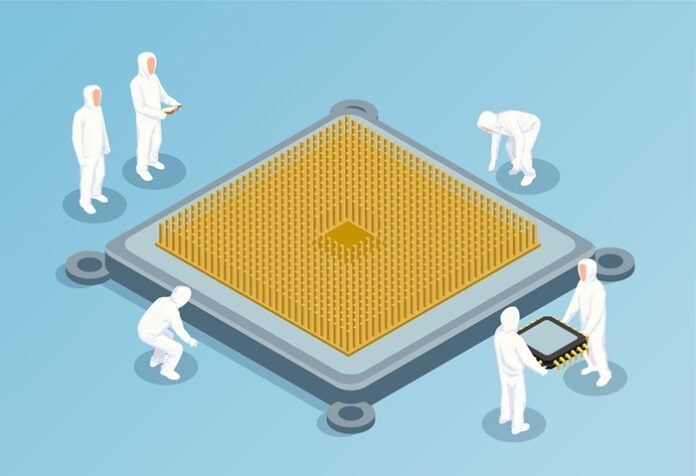Researchers at The University of Texas at El Paso have developed a portable device capable of detecting colorectal and prostate cancer more quickly and affordably than existing methods. The team believes this innovation could be particularly beneficial in developing countries, where higher cancer mortality rates often stem from barriers to timely medical diagnoses.
“Our new biochip device is inexpensive—costing just a few dollars—and highly sensitive, making accurate disease diagnosis accessible to everyone, regardless of their economic status. It is portable, rapid, and does not require specialized equipment,” said Dr.XiuJun (James) Li, a professor of chemistry and biochemistry at UTEP and the lead author of the study published in *Lab on a Chip*, a journal focused on micro- and nanoscale devices.
Li noted that the most widely used commercial method for cancer biomarker detection, known as ELISA, necessitates costly instruments and can take twelve hours or longer to process a sample. This delay is particularly problematic in rural areas of the U.S. and developing nations, where patient samples must be transported to larger cities equipped with specialized instruments, contributing to increased cancer mortality rates.
“Early detection of biomarkers before cancer spreads significantly enhances a patient’s chances of survival,” Li explained. “Any delays in testing, especially in regions lacking expensive tools, can severely impact a patient’s prognosis.”
The microfluidic device designed by Li’s team operates using minimal fluid amounts. It features an innovative ‘paper-in-polymer-pond’ structure that introduces patient blood samples into tiny wells and onto a specialized paper. This paper captures cancer protein biomarkers within the samples in just minutes. The paper then changes color, and the intensity of that color indicates the type of cancer detected and its progression.
While the current research focuses on prostate and colorectal cancers, Li indicated that the technique could be applied to various cancer types.
As reported by news-medical.net, the device can analyze samples in one hour—compared to 16 hours required by some traditional methods—and is approximately ten times more sensitive than these conventional techniques, even without specialized instruments. This increased sensitivity allows for the detection of cancer biomarkers present in smaller quantities, which is typical in early-stage cancer. In contrast, less sensitive devices may fail to identify these smaller amounts.
Before the device can be made available to the public, Li stated that the prototype must be finalized and tested on patients in clinical trials, a process that may take several years. Additionally, it will require approval from the Food and Drug Administration before use by healthcare providers.
“Dr.XiuJun Li’s innovation significantly enhances point-of-care diagnostics by reducing detection times and the need for expensive instruments,” said Robert Kirken, dean of the College of Science. “This makes it particularly suitable for resource-limited settings, improving early diagnosis and leading to better cancer outcomes. I am eager to see the developments stemming from this innovation.”
























